Understanding Exchange Fees - What You Need to Know
In today's globalized world, understanding exchange fees is more important than ever. Whether you're an avid traveler, a business owner dealing with international clients, or simply someone looking to send money abroad, these fees can have a significant impact on your financial dealings. Exchange fees are essentially the costs incurred when converting one currency into another, and they can vary widely based on a multitude of factors. By grasping the nuances of these fees, you can make more informed decisions that could save you a considerable amount of money.
Exchange fees refer to the costs incurred when converting one currency into another. This can include various charges that financial institutions and service providers impose for the service of currency conversion. Understanding these fees is crucial for anyone engaging in international transactions or trading in foreign markets. Not only do these fees affect the amount of money you ultimately receive or send, but they can also influence your overall financial strategy. Imagine planning a trip abroad, only to find that the money you thought you'd have is suddenly less due to unexpected fees. This is why being informed is essential.
There are several types of exchange fees, including transaction fees, service charges, and spreads. Each type can vary significantly depending on the service provider and the currencies involved. Understanding these different types can help you navigate the complex world of currency exchange. Let's break down the primary types:
Transaction fees are charges applied by financial institutions for processing currency conversions. These fees can differ based on the amount being exchanged and the institution's policies. For example, some banks may charge a flat rate for small transactions, while others might implement a percentage-based fee for larger amounts. This variability can be surprising, especially if you're not prepared for it.
When considering transaction fees, it's important to understand the difference between fixed and variable fees. Fixed fees remain constant regardless of the transaction size, while variable fees fluctuate based on the amount exchanged. For instance, if you're exchanging a small sum, a fixed fee might be more economical, whereas for larger amounts, a variable fee could be more beneficial. Knowing these differences can help you choose the best option for your needs.
Beware of hidden fees! Many providers may not disclose these fees upfront, which can significantly increase the overall cost of a transaction. It's essential to inquire about all potential charges before proceeding. Sometimes, what seems like a great deal can quickly turn sour once hidden fees come into play. Always read the fine print and ask questions.
Service charges are additional fees that may be applied for specific services, such as expedited processing or currency conversion at a physical location. Knowing these can help you budget effectively. For example, if you need cash in a hurry, opting for expedited service might seem convenient, but it could also come with a hefty price tag. Always weigh the benefits against the costs.
Exchange fees can significantly affect the total cost of transactions, especially for large amounts. Understanding their impact helps in making better financial decisions and optimizing currency exchanges. For businesses, these fees can influence pricing strategies and profit margins. They must account for these fees when pricing goods and services in foreign markets, as failing to do so could lead to reduced profits or even losses.
In international trade, exchange fees can influence pricing strategies and profit margins. Businesses must account for these fees when pricing goods and services in foreign markets. If a company overlooks these costs, it could find itself at a competitive disadvantage. This is particularly important in industries where profit margins are already slim.
For travelers, exchange fees can add up quickly during trips abroad. Being aware of these fees can help travelers choose the best methods for currency exchange and save money. Imagine arriving at your destination, only to find that the exchange service at the airport charges a hefty fee. By planning ahead and researching your options, you can avoid such pitfalls and keep more money in your pocket.
There are several strategies to reduce exchange fees, including comparing rates, using online services, and avoiding airport exchanges. Implementing these tactics can lead to significant savings. For instance, online currency exchange services often offer better rates and lower fees than traditional banks. Researching and choosing reputable services can lead to better financial outcomes.
Online currency exchange services often provide a more cost-effective alternative to traditional banks. By conducting thorough research and opting for reputable services, you can find better rates and lower fees, ultimately leading to more favorable financial outcomes.
The timing of currency exchanges can also impact fees. Monitoring market trends and exchanging currency at favorable rates can help minimize costs associated with exchange fees. Just like in stock trading, timing can be everything!
- What are the most common types of exchange fees? The most common types include transaction fees, service charges, and spreads.
- How can I find the best exchange rates? Comparing rates from different providers and using online platforms can help you find the best rates.
- Are there any hidden fees I should be aware of? Yes, always ask about potential hidden fees before proceeding with any transaction.
- How can I minimize exchange fees while traveling? Use local ATMs, avoid airport exchanges, and research online services for better rates.
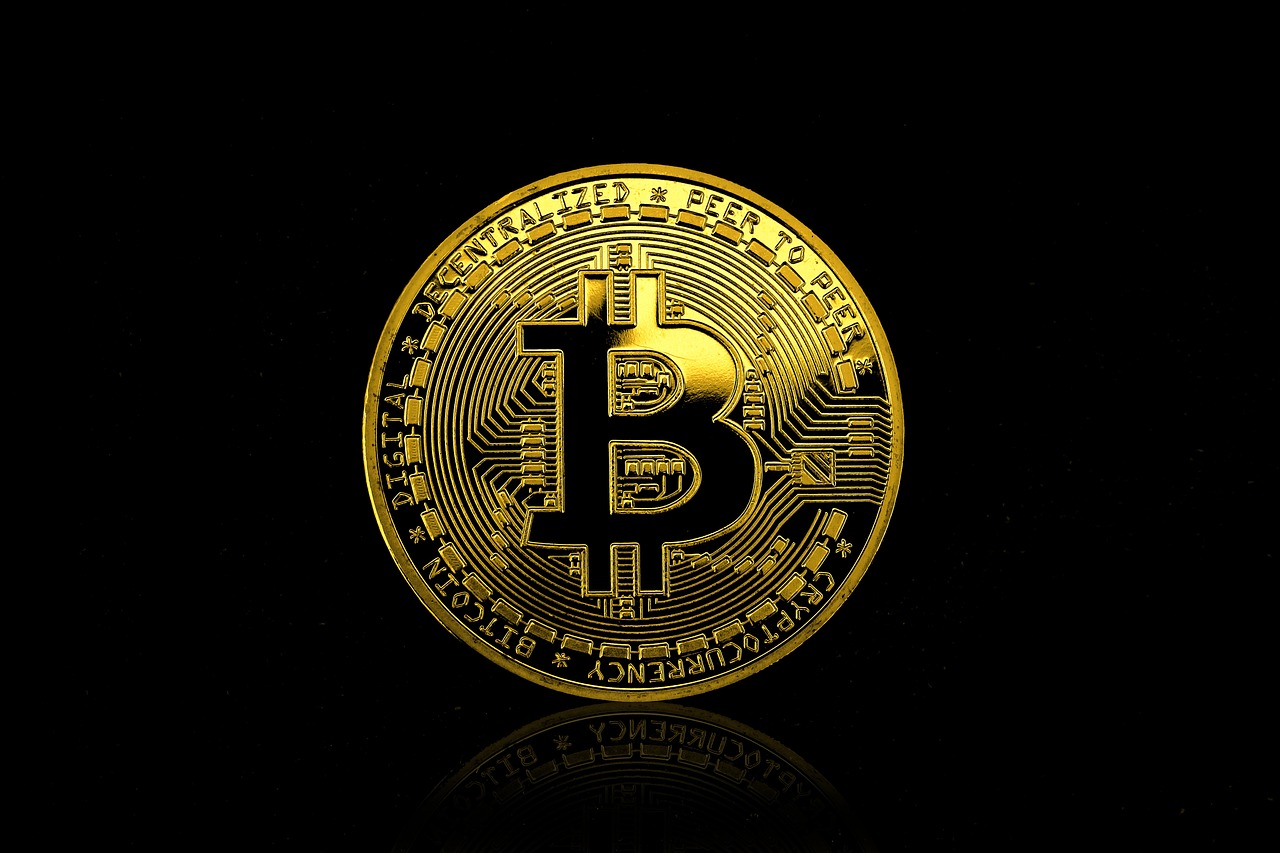
What Are Exchange Fees?
Exchange fees are the costs associated with converting one currency into another. If you've ever traveled internationally or made a purchase from a foreign vendor, you’ve likely encountered these fees without even realizing it. They can sneak up on you like a shadow in the night, adding extra costs to your transactions. Understanding these fees is crucial for anyone engaging in international transactions, whether for business or leisure. In essence, these fees are the price you pay for the convenience of currency conversion.
When you exchange money, the provider—be it a bank, an online service, or a currency exchange kiosk—will charge you for their services. These fees can vary widely between different providers and can significantly impact the total amount you receive or pay. It's like shopping for a new pair of shoes; the price tag may look appealing, but hidden costs can turn a great deal into a less-than-stellar one.
Exchange fees can be categorized into several types, which include transaction fees, service charges, and spreads. Each of these fees plays a role in determining how much you ultimately pay when converting currencies. For instance, the transaction fee is a standard charge that many banks and exchange services apply when processing a currency conversion. On the other hand, the spread is the difference between the buying and selling price of a currency, which can also eat into your funds.
In addition to the obvious fees, there are also hidden charges that can pop up unexpectedly. These hidden fees may not be disclosed upfront, leading to unpleasant surprises when you check your final transaction costs. It's essential to dig deeper and ask questions about all potential charges before proceeding with any currency exchange. After all, knowledge is power, and being informed can save you a significant amount of money in the long run.
In summary, understanding what exchange fees are and how they work is vital for anyone dealing with international transactions. By being aware of the different types of fees and the factors that influence them, you can make more informed decisions and avoid unnecessary costs. So, the next time you’re about to convert currency, take a moment to consider the fees involved—it could save you more than just a few bucks!

Types of Exchange Fees
When diving into the world of currency exchange, it’s essential to understand that not all fees are created equal. Exchange fees can vary widely based on the type of transaction and the service provider you choose. Let's break down the main types of exchange fees that you might encounter, so you can navigate your financial dealings more effectively.
The first type you'll likely come across is transaction fees. These are the charges that financial institutions impose for processing currency conversions. Think of them as the gatekeepers of your money—they ensure that the transaction goes through, but they also take a slice of the pie for their service. Transaction fees can differ significantly based on the amount being exchanged and the policies of the institution. For example, a bank might charge a flat fee for any transaction, while another might charge a percentage of the total amount. This variability can make a big difference, especially if you're converting large sums.
In addition to transaction fees, you should also be aware of service charges. These are additional fees that may apply for specific services. For instance, if you're looking for expedited processing or if you need to convert currency at a physical location, you could incur extra charges. Service charges can sometimes catch you off guard, so it’s a good idea to ask about them upfront to avoid any unpleasant surprises later on.
Another critical aspect to consider is the spread. The spread is the difference between the buying and selling prices of a currency. When you exchange money, the rate you receive is often less favorable than the market rate, and this difference is how providers make a profit. It’s akin to buying a concert ticket from a scalper; you end up paying more than the face value. Understanding the spread can help you identify the true cost of your currency exchange.
Additionally, it's important to be cautious of hidden fees. These are the sneaky charges that many providers may not disclose upfront. Hidden fees can significantly increase the overall cost of a transaction, making it vital to inquire about all potential charges before proceeding. Always read the fine print and ask questions to ensure you have a complete picture of what you’ll be paying.
To summarize, here’s a quick look at the types of exchange fees:
| Type of Fee | Description |
|---|---|
| Transaction Fees | Charges for processing currency conversions, varying by institution. |
| Service Charges | Additional fees for specific services like expedited processing. |
| Spread | Difference between buying and selling prices of a currency. |
| Hidden Fees | Unannounced charges that can increase the total cost of a transaction. |
By understanding these different types of exchange fees, you can make more informed decisions and potentially save a significant amount of money in your financial transactions. Always remember to do your research, compare rates, and ask questions to ensure you are getting the best deal possible.
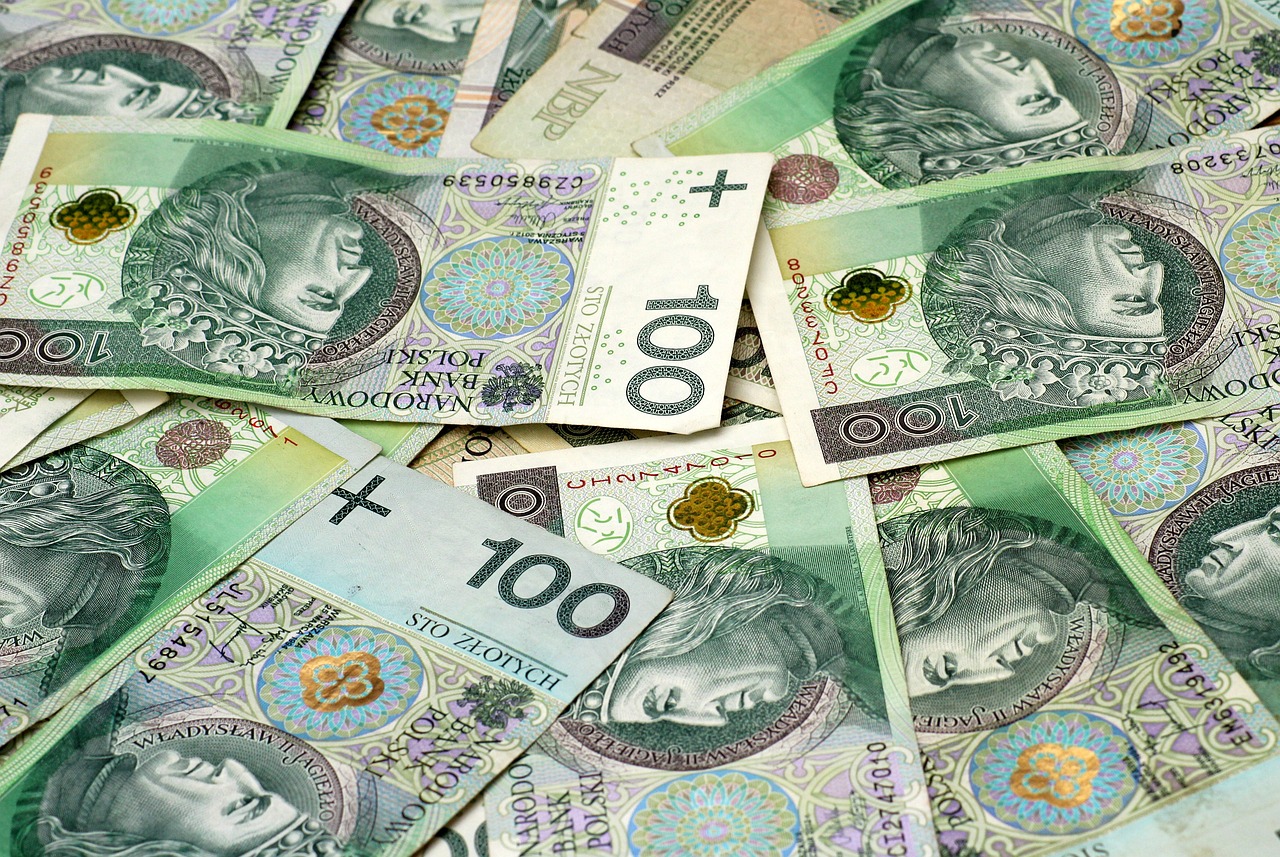
Transaction Fees
Transaction fees are a crucial aspect of currency exchange that can often catch people off guard. These fees are essentially the charges imposed by financial institutions for processing currency conversions. Imagine you're planning a trip abroad or engaging in international trade; every time you convert your money, there's a little fee waiting to nibble away at your funds. Understanding these fees is vital, as they can vary widely depending on the institution, the amount being exchanged, and even the currencies involved.
To give you a clearer picture, let's break down how transaction fees work. When you exchange currency, the financial institution might charge a flat fee or a percentage of the total amount. For instance, if you're converting $1,000 into euros and the institution charges a 2% fee, you'd be paying $20 just to make that exchange. This might not sound like much for small amounts, but for larger transactions, these fees can add up quickly.
There are two main types of transaction fees you should be aware of: fixed fees and variable fees. Fixed fees remain constant irrespective of the transaction size, while variable fees fluctuate based on the amount being exchanged. This means that if you're planning to exchange a considerable sum, a variable fee could end up costing you significantly more than a fixed fee would. It’s like choosing between a flat-rate shipping fee and a percentage that increases with weight; the former is predictable, while the latter can be a gamble.
Additionally, it’s important to keep an eye out for hidden fees. Many providers may not disclose these upfront, which can lead to unpleasant surprises when you see the final amount credited to your account. Hidden fees can include anything from administrative charges to unfavorable exchange rates that aren't immediately apparent. Before you proceed with any currency exchange, make sure to ask about all potential charges. Transparency is key, and it’s your money at stake!
In summary, transaction fees are an unavoidable part of currency exchange, but being informed can empower you to make better financial decisions. By understanding the types of fees, how they are applied, and the potential for hidden charges, you can navigate the world of currency exchanges more effectively. Always remember, knowledge is power, especially when it comes to your finances!
- What is a transaction fee? A transaction fee is a charge imposed by financial institutions for processing currency exchanges.
- Are transaction fees the same for all institutions? No, transaction fees can vary significantly between different financial institutions and based on the amount being exchanged.
- How can I avoid high transaction fees? You can avoid high transaction fees by comparing rates, using online services, and being cautious of hidden fees.
- What is the difference between fixed and variable fees? Fixed fees remain constant regardless of the transaction size, while variable fees change based on the amount being exchanged.
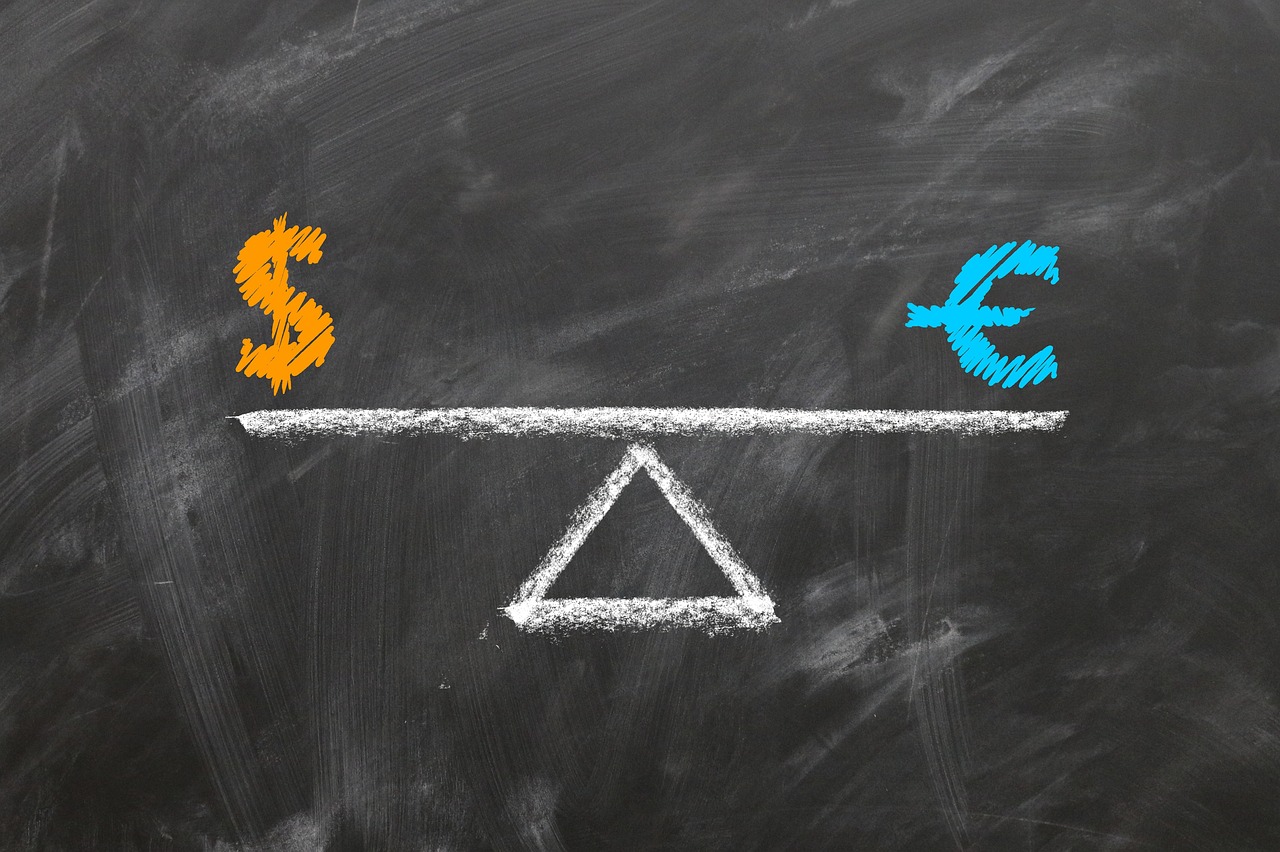
Fixed vs. Variable Fees
When it comes to exchange fees, understanding the difference between fixed and variable fees can be a game changer in your financial dealings. Fixed fees are straightforward; they remain constant regardless of the amount you’re exchanging. For instance, if a bank charges a fixed fee of $15 for any currency conversion, whether you’re exchanging $100 or $1,000, that fee stays the same. This can be beneficial for larger transactions, as the percentage cost of the fee decreases with the amount exchanged.
On the other hand, variable fees can fluctuate based on the transaction size. For example, a financial institution might charge a fee that is 1% of the total amount being exchanged. So, if you are converting $500, you would pay $5, but if you decide to exchange $5,000, your fee would jump to $50. While variable fees can sometimes seem lower for small transactions, they can quickly add up, making them less favorable for larger exchanges.
To illustrate this, let’s take a look at a simple comparison:
| Transaction Amount | Fixed Fee ($15) | Variable Fee (1%) |
|---|---|---|
| $100 | $15 | $1 |
| $500 | $15 | $5 |
| $1,000 | $15 | $10 |
| $5,000 | $15 | $50 |
This table clearly shows how the cost of variable fees can escalate with larger transactions, while fixed fees remain unchanged. Therefore, when deciding between the two, consider not just the amount you want to exchange, but also how often you plan to conduct such transactions. If you’re a frequent traveler or someone who regularly engages in international trade, opting for a fixed fee might save you money in the long run.
In summary, understanding the nuances of fixed versus variable fees can empower you to make informed decisions about your currency exchanges. Always evaluate your transaction size and frequency to determine which fee structure is more advantageous for your specific needs.
- What are the most common types of exchange fees? Exchange fees can include transaction fees, service charges, and spreads, each varying by provider.
- How can I find the best exchange rates? Research online currency exchange services and compare rates before making a transaction.
- Are there hidden fees I should be aware of? Yes, always inquire about potential hidden fees that may not be disclosed initially.
- Is it better to exchange currency at the airport? Generally, it is advisable to avoid airport exchanges due to higher fees and less favorable rates.

Hidden Fees
When diving into the world of currency exchange, one of the sneakiest pitfalls you can encounter is the infamous . These fees can lurk in the shadows, waiting to pounce on unsuspecting individuals and businesses alike. You might think you're getting a great deal on an exchange rate, only to find out later that there are additional charges that weren't disclosed upfront. This can leave a sour taste in your mouth and significantly inflate the overall cost of your transaction.
So, what exactly are these hidden fees? They can take many forms, and understanding them is crucial to safeguarding your finances. Here are some common types:
- Markup on Exchange Rates: Some providers may offer a seemingly attractive exchange rate but add a markup that isn't clearly stated. This can lead to you receiving less favorable rates than you initially thought.
- Service Fees: These are fees that may be tacked on for processing your transaction. They can vary widely and are often not mentioned until after you've committed to the exchange.
- Withdrawal Fees: If you're converting currency and then withdrawing it, some banks or services may charge a fee for that withdrawal, which can catch you off guard.
To avoid falling victim to hidden fees, it's essential to conduct thorough research before committing to a currency exchange. Always ask for a complete breakdown of any potential charges and compare the total costs across different providers. This way, you can ensure that you’re making an informed decision that won’t leave your wallet feeling lighter than expected.
What are hidden fees in currency exchange?
Hidden fees are charges that are not disclosed upfront when exchanging currency, which can increase the overall cost of the transaction.
How can I identify hidden fees?
To identify hidden fees, always ask for a detailed breakdown of all charges associated with the exchange, including any markups on rates, service fees, and withdrawal fees.
Are online currency exchange services free from hidden fees?
While many online services offer competitive rates, it's still crucial to read the fine print and ask about any potential hidden fees before proceeding with the exchange.

Service Charges
When diving into the world of currency exchange, it's essential to understand that can sneak up on you like an unexpected wave at the beach. These are additional fees that financial institutions may impose for specific services related to currency conversion. Think of it as the fine print that can make a significant difference in your wallet. For example, if you're looking to convert your dollars into euros at a bustling airport exchange counter, you might encounter a service charge that you didn’t anticipate, resulting in a less favorable rate.
Service charges can vary widely depending on where you are and how you're exchanging your currency. Some common scenarios where service charges might apply include:
- Expedited Processing: Need your currency fast? Expect to pay a premium for quicker service.
- Physical Locations: Converting cash at a bank branch or exchange bureau often comes with added fees.
- Online Transactions: While online services can be cheaper, they may also charge for immediate exchanges or special requests.
It's crucial to do your homework before committing to a transaction. Many people fall into the trap of believing that all exchanges are created equal, but that couldn't be further from the truth. Different providers have different fee structures, and understanding these can help you make informed decisions. For instance, some banks might offer low exchange rates but tack on hefty service charges, while others might have slightly higher rates but minimal fees. This is why a little research can go a long way in ensuring that you get the most bang for your buck.
To illustrate the potential impact of service charges, consider the following table that compares service charges from various providers:
| Provider | Exchange Rate | Service Charge |
|---|---|---|
| Bank A | 1.10 | $5 |
| Bank B | 1.08 | $2 |
| Exchange Bureau | 1.09 | $7 |
| Online Service | 1.11 | $1 |
This table highlights how even a small difference in exchange rates, combined with varying service charges, can drastically affect the total amount you receive. In this case, while Bank A offers a higher exchange rate, its service charge diminishes the overall benefit. On the other hand, the online service, despite having a slightly higher rate, ends up being the most cost-effective option.
In summary, being aware of service charges is crucial for anyone looking to exchange currency. It's not just about the rate you see; it's about the total cost of the transaction. By understanding these charges and comparing different providers, you can save yourself a substantial amount of money. So, the next time you're planning to exchange currency, remember to keep an eye out for those sneaky service charges!
- What are service charges in currency exchange? Service charges are additional fees applied by financial institutions for specific services related to currency conversion.
- How can I find the best exchange rates? Compare rates from various providers, including banks and online services, and be sure to consider both the exchange rate and any service charges.
- Are there hidden fees in currency exchange? Yes, some providers may not disclose all fees upfront, so it’s essential to ask about any potential charges before proceeding with an exchange.
- Can I avoid service charges altogether? While it may be challenging to eliminate all service charges, you can minimize them by using online services or planning your exchanges carefully.

How Exchange Fees Impact Transactions
Exchange fees play a pivotal role in shaping the total cost of transactions, particularly when dealing with foreign currencies. Imagine you're planning a trip to Europe, and you need to convert your dollars into euros. What seems like a straightforward exchange can quickly become a financial puzzle when you factor in these fees. They can significantly inflate the amount you end up spending, making it essential to understand their implications. For instance, if you’re exchanging $1,000 and incur a 3% exchange fee, you’re effectively losing $30 right off the bat. That’s money that could have gone towards a nice dinner or a memorable experience!
Moreover, the impact of exchange fees extends beyond individual travelers. In the realm of international trade, businesses face a similar challenge. When pricing goods for export, companies must take into account the exchange rates and associated fees to ensure their prices remain competitive. If a business overlooks these costs, it could inadvertently price itself out of the market or, worse, operate at a loss. For example, a manufacturer exporting products to Europe might set a price based on current exchange rates, but if the fees are not considered, the actual revenue received after conversion could be significantly lower than expected.
It's also important to recognize that exchange fees can vary widely among different service providers. Some banks and financial institutions may charge a flat fee, while others might apply a percentage of the transaction amount. This variability can lead to substantial differences in the total cost of a transaction. To illustrate this, consider the following table that compares the fees of three different currency exchange providers:
| Provider | Transaction Fee | Exchange Rate Markup |
|---|---|---|
| Bank A | $5 | 2% |
| Bank B | $10 | 1.5% |
| Online Service | $2 | 1% |
As highlighted in the table, opting for an online service could save you money compared to traditional banks, especially for larger transactions. This is why it’s crucial to do your homework and compare different options before committing to a currency exchange.
In conclusion, understanding how exchange fees impact transactions is vital for anyone dealing with foreign currencies. Whether you're a traveler planning your next adventure or a business owner navigating international markets, being aware of these costs can help you make informed decisions. By factoring in these fees, you can optimize your financial strategy and ultimately save money. So, the next time you plan to exchange currency, think about those pesky fees and how they might affect your bottom line!
- What are exchange fees? Exchange fees are costs incurred when converting one currency to another, which can include transaction fees, service charges, and spreads.
- How can I minimize exchange fees? You can minimize exchange fees by comparing rates, using online services, and avoiding exchanges at airports.
- Do all banks charge the same exchange fees? No, exchange fees can vary significantly between banks and service providers, so it’s important to shop around.
- Are there any hidden fees I should be aware of? Yes, some providers may not disclose all fees upfront, so always ask about potential hidden charges before proceeding with a transaction.

Impact on International Trade
When it comes to international trade, the implications of exchange fees are profound and far-reaching. Imagine you're a business owner looking to expand your products into foreign markets. You’ve done your research, identified potential customers, and even calculated your shipping costs. But have you factored in the exchange fees? These fees can significantly alter your pricing strategy and profit margins, often in ways that are not immediately obvious.
Exchange fees can act like a hidden tax on your international transactions. For example, if you're importing goods from Europe and the exchange rate shifts unfavorably, you might find that your costs have increased overnight. This is particularly critical when dealing with large quantities or high-value items. A small percentage fee may not seem like much at first glance, but when applied to substantial sums, it can lead to significant losses. Therefore, understanding how these fees work is essential for businesses engaged in international trade.
Moreover, the impact of exchange fees isn't just limited to the cost of goods; it also extends to how you price your products in foreign markets. If your exchange fees are high, you may need to increase your prices to maintain your profit margins, which could make your products less competitive. On the flip side, if you can find ways to minimize these fees, you can offer more attractive pricing to potential customers, giving you an edge over competitors.
To illustrate this point, consider the following table that outlines the potential impact of exchange fees on a hypothetical product:
| Scenario | Exchange Fee (%) | Cost of Product (USD) | Final Cost to Customer (USD) |
|---|---|---|---|
| Scenario A | 1% | 100 | 101 |
| Scenario B | 3% | 100 | 103 |
| Scenario C | 5% | 100 | 105 |
As you can see from the table, a mere increase in the exchange fee can lead to a higher final cost for the customer. This not only affects your sales but can also impact your brand’s reputation in foreign markets. Customers may perceive your products as overpriced, leading to lost sales and diminished market share.
Additionally, businesses must also consider the volatility of exchange rates. Fluctuations can lead to unpredictable costs, making budgeting and financial forecasting a challenging task. To navigate this complexity, many companies employ financial instruments like hedging to lock in exchange rates, which can mitigate the impact of these fees. However, this strategy comes with its own set of risks and costs.
In summary, the impact of exchange fees on international trade is multi-faceted. From altering pricing strategies to affecting profit margins, these fees can have significant consequences for businesses looking to thrive in the global marketplace. Understanding and managing these fees is not just a financial necessity; it's a strategic imperative. By keeping a close eye on exchange rates and fees, businesses can better position themselves for success in international trade.
- What are exchange fees? Exchange fees are the costs incurred when converting one currency into another, affecting both consumers and businesses.
- How do exchange fees impact international trade? They can influence pricing strategies and profit margins, making it essential for businesses to factor them into their financial planning.
- Can I avoid exchange fees? While it's challenging to eliminate them entirely, you can minimize fees by comparing rates and using online services.
- What is the difference between fixed and variable exchange fees? Fixed fees remain constant regardless of the transaction size, while variable fees fluctuate based on the amount exchanged.

Impact on Travelers
When it comes to traveling abroad, understanding exchange fees is as crucial as packing your passport. Imagine landing in a foreign country, excited to explore, only to realize that the money you exchanged didn’t stretch as far as you thought. Exchange fees can add up quickly, turning that dream vacation into a budget nightmare. It’s essential for travelers to be aware of how these fees impact their spending power.
First and foremost, travelers often encounter transaction fees at currency exchange booths, banks, or even ATMs. These fees can vary widely depending on where you exchange your money. For example, exchanging cash at an airport kiosk might seem convenient, but it often comes with some of the highest fees. On the other hand, withdrawing cash from an ATM might incur lower fees, but you could still face additional charges from your bank. It’s like being caught between a rock and a hard place!
Moreover, the exchange rate itself plays a significant role in determining how much your money is worth. Currency exchange services often apply a spread, which is the difference between the buying and selling price of a currency. This spread can significantly increase your costs. For instance, if the market rate for 1 Euro is $1.10, but the exchange service offers it at $1.15, you’re effectively losing out on that difference. This is why it’s vital to check the rates before exchanging your money.
Travelers should also be mindful of hidden fees. Some currency exchange providers may not disclose all their charges upfront, leading to unpleasant surprises later. For example, a provider might advertise a low exchange rate but then charge a hefty service fee, making the overall cost much higher than anticipated. Therefore, always ask about any potential hidden fees before making a transaction.
To help you visualize the potential costs, here’s a quick comparison of different exchange methods:
| Exchange Method | Typical Fees | Pros | Cons |
|---|---|---|---|
| Airport Kiosk | High (up to 10%) | Convenient | High fees and poor rates |
| Bank Exchange | Moderate (3-5%) | Better rates than kiosks | May require an account |
| ATM Withdrawal | Variable (1-3% + bank fees) | Competitive rates | Possible foreign transaction fees |
| Online Currency Exchange | Low (1-2%) | Convenient and competitive rates | Requires setup and verification |
In conclusion, being aware of exchange fees can significantly impact your travel budget. By planning ahead and choosing the right methods for currency exchange, you can save money and enjoy your travels without the stress of unexpected costs. After all, the last thing you want is to cut your trip short because you didn’t account for those sneaky fees!
- What are the best ways to exchange currency while traveling? Using ATMs and reputable online currency exchange services often provides the best rates.
- How can I avoid hidden fees? Always ask about fees upfront and read the fine print before exchanging money.
- Is it better to exchange money before traveling? It depends on the rates available; sometimes, exchanging a small amount beforehand can help with initial expenses.

Ways to Minimize Exchange Fees
Minimizing exchange fees is crucial for anyone looking to save money during currency conversions. Imagine you're planning a trip abroad or making a significant investment in a foreign market; every penny counts! The good news is that there are several effective strategies you can implement to reduce these pesky fees. First and foremost, comparing rates is essential. Not all financial institutions offer the same rates, and even slight differences can lead to substantial savings. By taking the time to shop around, you can find the best deal that suits your needs.
Another fantastic way to minimize exchange fees is by utilizing online currency exchange services. These platforms often provide better rates and lower fees compared to traditional banks. For instance, services like Wise and Revolut are known for their competitive rates and transparency. You can easily compare their offerings online, giving you the power to choose the best option available. However, always ensure that the service you choose is reputable and secure to protect your hard-earned money.
Timing your exchanges can also play a significant role in minimizing fees. The foreign exchange market is dynamic, with rates fluctuating throughout the day based on various factors. By monitoring market trends and exchanging currency at favorable rates, you can significantly reduce the costs associated with exchange fees. Think of it like shopping for groceries; buying when items are on sale can lead to substantial savings. Similarly, being strategic about when you exchange your currency can yield better financial outcomes.
Additionally, it’s wise to avoid currency exchanges at airports. While it may be convenient, airport exchange services typically charge higher fees and offer poorer rates. Instead, consider withdrawing cash from an ATM that offers competitive exchange rates or using a local bank. This approach can lead to significant savings, allowing you to spend more on experiences rather than unnecessary fees.
Lastly, always be on the lookout for hidden fees. Many providers may not disclose all charges upfront, which can lead to an unpleasant surprise when you receive your final bill. Make it a habit to ask about all potential fees before proceeding with any currency exchange transaction. This simple step can save you from unexpected costs and help you budget more effectively.
- What are exchange fees? Exchange fees are costs incurred when converting one currency into another, impacting the total amount received in the new currency.
- How can I find the best exchange rates? Comparing rates from various financial institutions, utilizing online services, and monitoring market trends can help you find the best exchange rates.
- Are there hidden fees I should be aware of? Yes, many providers may charge hidden fees, so it’s essential to ask about all potential charges before completing a transaction.
- Is it better to exchange currency at the airport? Generally, no. Airport exchanges often have higher fees and poorer rates compared to banks or online services.
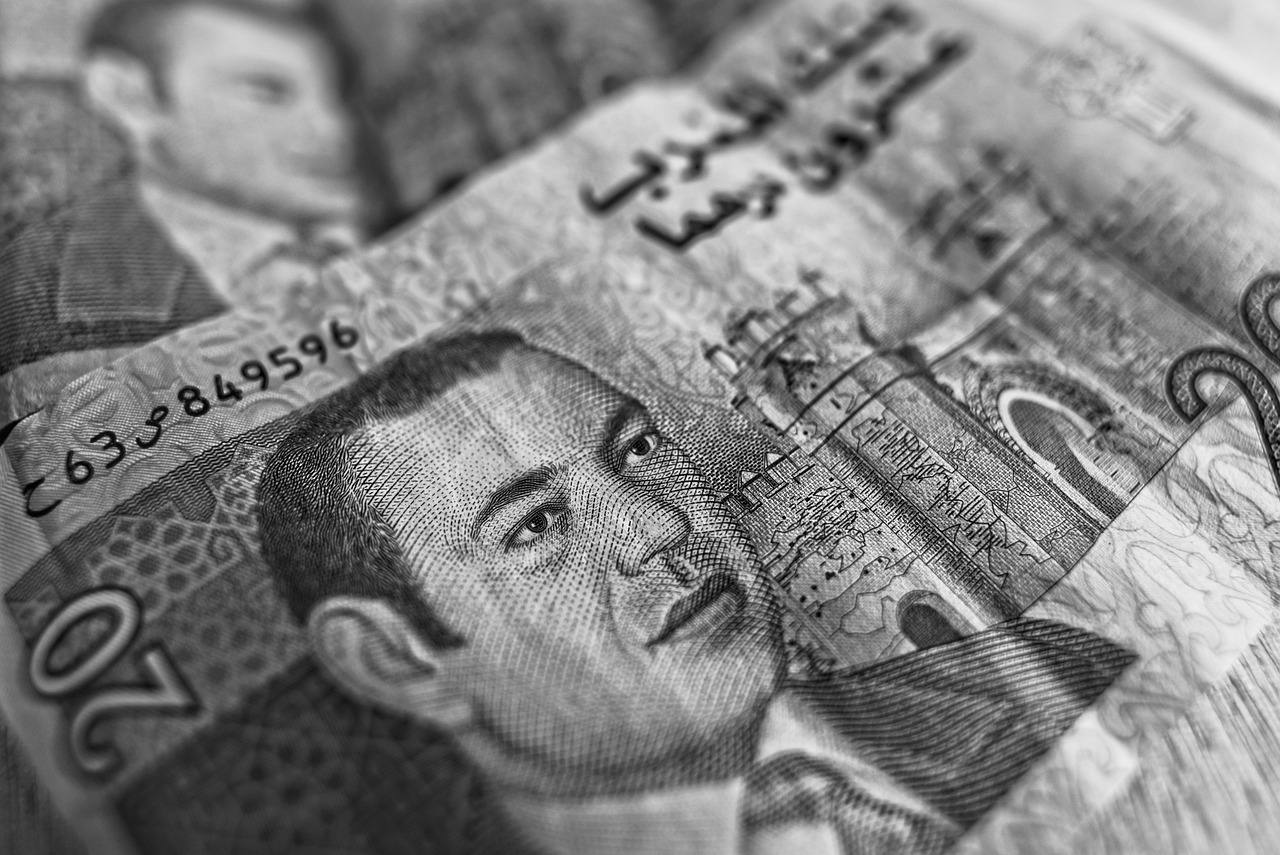
Using Online Currency Exchange Services
This article explores the various aspects of exchange fees, including their definition, types, and impact on transactions, to help you make informed decisions in your financial dealings.
Exchange fees refer to the costs incurred when converting one currency into another. Understanding these fees is crucial for anyone engaging in international transactions or trading in foreign markets.
There are several types of exchange fees, including transaction fees, service charges, and spreads. Each type can vary significantly depending on the service provider and the currencies involved.
Transaction fees are charges applied by financial institutions for processing currency conversions. These fees can differ based on the amount being exchanged and the institution's policies.
Fixed fees remain constant regardless of the transaction size, while variable fees fluctuate based on the amount exchanged. Understanding these differences can help you choose the best option for your needs.
Many providers may not disclose hidden fees upfront, which can significantly increase the overall cost of a transaction. It's essential to inquire about all potential charges before proceeding.
Service charges are additional fees that may be applied for specific services, such as expedited processing or currency conversion at a physical location. Knowing these can help you budget effectively.
Exchange fees can significantly affect the total cost of transactions, especially for large amounts. Understanding their impact helps in making better financial decisions and optimizing currency exchanges.
In international trade, exchange fees can influence pricing strategies and profit margins. Businesses must account for these fees when pricing goods and services in foreign markets.
For travelers, exchange fees can add up quickly during trips abroad. Being aware of these fees can help travelers choose the best methods for currency exchange and save money.
There are several strategies to reduce exchange fees, including comparing rates, using online services, and avoiding airport exchanges. Implementing these tactics can lead to significant savings.
In today's digital age, has become a popular and often more cost-effective method for currency conversion. These platforms typically offer better rates and lower fees compared to traditional banks and physical exchange offices. For instance, many online services provide real-time exchange rates that are closer to the market rate, allowing users to maximize their currency's value.
When you opt for an online service, it's essential to choose a reputable provider. Look for platforms that are well-reviewed and have a transparent fee structure. This way, you can avoid unpleasant surprises that come from hidden fees. Additionally, many online services allow users to lock in rates for a specific period, which can be beneficial if you anticipate changes in the market.
Here are some benefits of using online currency exchange services:
- Convenience: You can exchange currency from the comfort of your home, anytime.
- Competitive Rates: Online platforms often provide better rates than physical locations.
- Speed: Transactions are usually processed quickly, allowing for immediate access to funds.
However, it's crucial to be cautious. Always check the service's security measures to ensure your personal information is protected. Look for platforms that use encryption and have positive customer feedback. By taking these steps, you can enjoy the benefits of online currency exchange while minimizing potential risks.
Common types include transaction fees, service charges, and spreads. Each can vary based on the service provider and the currencies involved.
Comparing rates from different providers, using online tools, and monitoring market trends can help you find the best exchange rates.
Yes, some providers may not disclose all fees upfront. Always inquire about any potential hidden fees before completing a transaction.
Generally, it's not advisable to exchange currency at the airport, as they often have higher fees and less favorable rates compared to online services or local banks.
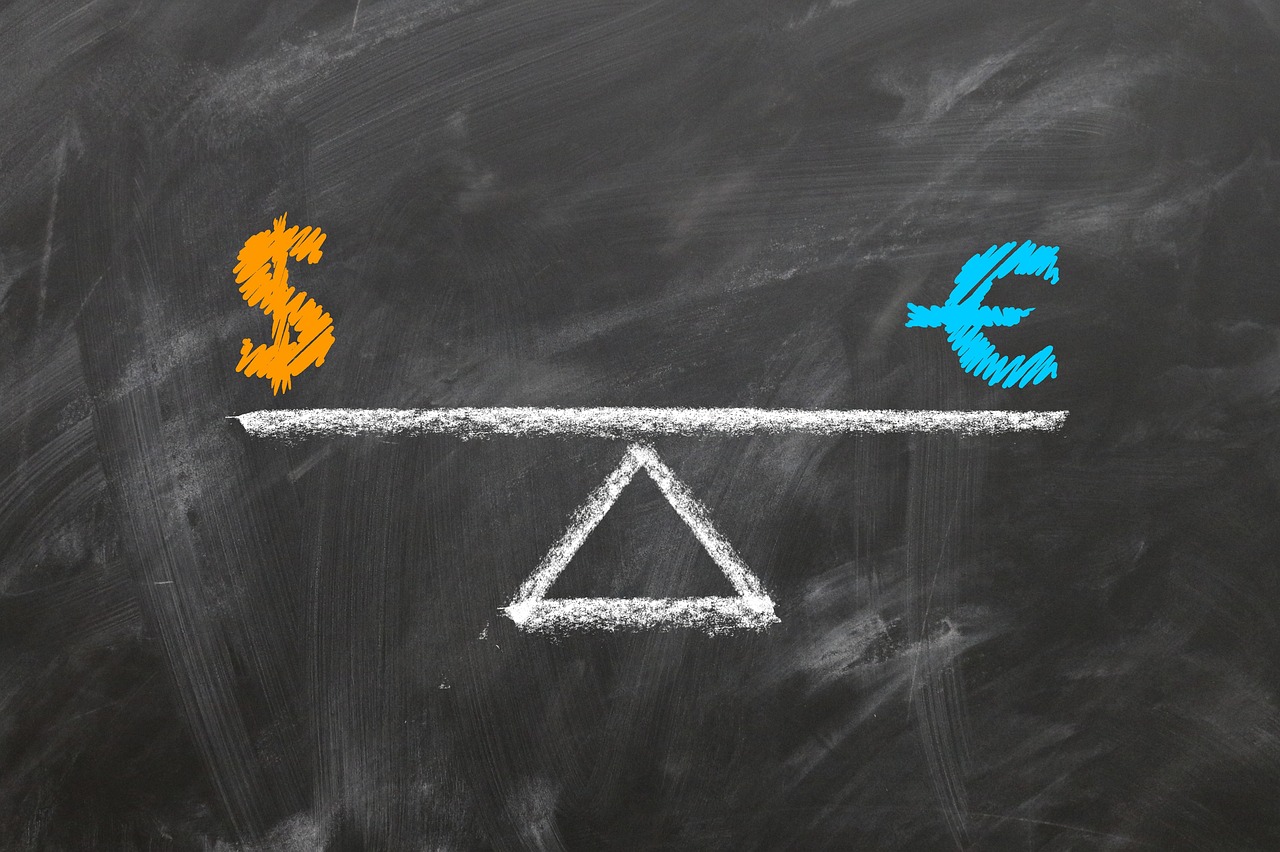
Timing Your Exchanges
When it comes to currency exchange, timing can be everything. Much like a seasoned surfer waiting for the perfect wave, knowing when to exchange your currency can lead to significant savings. The foreign exchange market is incredibly dynamic, with rates fluctuating based on a multitude of factors including economic indicators, geopolitical events, and even market sentiment. So, how do you catch that wave and make the most of your currency transactions?
One of the key strategies is to keep an eye on the market trends. By monitoring the exchange rates over a period of time, you can identify patterns and predict when rates might be more favorable. For instance, if you notice that a particular currency tends to strengthen against your home currency during certain months or after specific economic reports, you can plan your exchanges accordingly.
Additionally, consider using tools like currency alerts. Many online currency exchange platforms offer the option to set alerts for specific exchange rates. This way, you won't have to constantly check rates; instead, you can go about your day while the platform notifies you when it’s time to act. This is particularly useful for travelers or businesses that need to make exchanges regularly.
Another factor to consider is the time of day you choose to make your exchange. The forex market operates 24 hours a day, but certain times tend to be more active than others. For example, the market is often most volatile during the overlap of major trading sessions, such as when both the London and New York markets are open. This can lead to better rates, but it can also mean increased risk if you're not careful.
To illustrate this, let's take a look at a simple table that outlines the best times to exchange currency based on market activity:
| Time Zone | Active Trading Sessions | Best Times to Exchange |
|---|---|---|
| GMT | London Session | 8 AM - 4 PM |
| EST | New York Session | 8 AM - 5 PM |
| GMT | Asian Session | 11 PM - 8 AM |
By exchanging currency during these peak times, you might just find a rate that works in your favor. However, it's also important to remain cautious and not let the excitement of a good rate lead to impulsive decisions. Always do your homework and ensure that you are aware of any potential fees that could eat into your savings.
In conclusion, timing your currency exchanges can be a game-changer. By staying informed, utilizing alerts, and choosing the right times to exchange, you can navigate the fluctuating waters of the forex market with confidence. Remember, every little bit counts, especially when you're dealing with larger sums. So, keep your eyes peeled, and don't let that perfect wave pass you by!
- What are exchange rates? Exchange rates are the value of one currency in relation to another, determining how much of one currency you will receive for a unit of another.
- How can I monitor exchange rates? You can use financial news websites, mobile apps, or currency exchange platforms that offer real-time rate tracking and alerts.
- What are the risks of waiting to exchange currency? Currency values can fluctuate dramatically, and waiting too long could result in a less favorable rate.
Frequently Asked Questions
- What are exchange fees?
Exchange fees are the costs incurred when converting one currency to another. These fees can vary greatly depending on the service provider, the currencies involved, and the amount being exchanged. Understanding these fees is crucial for anyone engaging in international transactions or trading.
- What types of exchange fees are there?
There are several types of exchange fees, including transaction fees, service charges, and spreads. Transaction fees can be fixed or variable, while service charges may apply for specific services like expedited processing. It's essential to be aware of all potential fees before making a transaction.
- How do exchange fees impact international trade?
Exchange fees can significantly affect pricing strategies and profit margins in international trade. Businesses need to factor these fees into their pricing when selling goods and services in foreign markets to ensure they remain competitive and profitable.
- How can travelers minimize exchange fees?
Travelers can reduce exchange fees by comparing rates, using online currency exchange services, and avoiding exchanges at airports, which often have higher fees. Being informed about the best methods for currency exchange can lead to significant savings during trips abroad.
- Are there hidden fees associated with currency exchange?
Yes, many providers may not disclose hidden fees upfront, which can increase the overall cost of a transaction. It's crucial to ask about all potential charges and read the fine print to avoid unexpected costs.
- What is the difference between fixed and variable transaction fees?
Fixed transaction fees remain constant regardless of the amount being exchanged, while variable fees fluctuate based on the size of the transaction. Knowing which type applies to your exchange can help you choose the most cost-effective option.
- How can timing affect exchange fees?
The timing of currency exchanges can impact fees significantly. By monitoring market trends and exchanging currency when rates are favorable, you can minimize the costs associated with exchange fees.



















